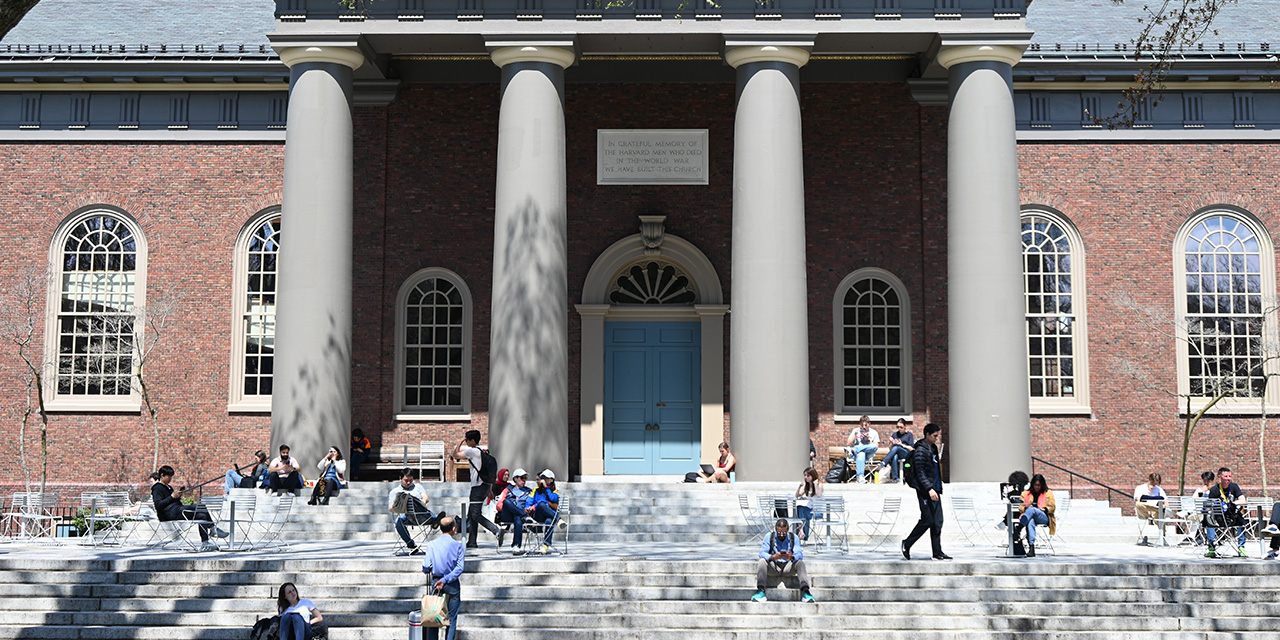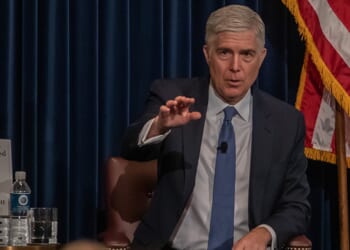
Since Inauguration Day, the Trump administration has taken decisive action against DEI in universities, threatening to investigate, punish, and withhold funding from higher education institutions that discriminate in the name of diversity. Most conservatives, who correctly see DEI as a threat to colorblind equality, have celebrated these maneuvers. But some center-right intellectuals, who claim to oppose DEI in theory, have criticized the White House for using administrative power to eliminate it in practice.
One such figure is Jeffrey Flier, former dean of Harvard Medical School, who has gained attention in recent years as an insider critic of DEI. He has been mildly critical of diversity statements in faculty hiring, which he claims infringe on “academic freedom” and diminish “the true value of diversity.” Some conservatives praise him as a reformer, but the truth is more complicated: as dean, Flier was not a critic of DEI at all. In fact, he oversaw its rapid expansion and became a critic only after he retired from that position.
Finally, a reason to check your email.
Sign up for our free newsletter today.
Last month on X, I asked Flier to substantiate the facts about his opposition to DEI. “When you were Dean of Harvard Medical School, what did you do to stop racial discrimination in admissions, hiring, and programs?” I asked. “Why can’t I find any record of you speaking out against your department’s illegal DEI practices when you were in charge?”
Flier attempted to duck the question but eventually relented. “[W]hen I was dean, affirmative action in admissions and various DEI programs were not illegal,” he replied.
This approach distorted the law—discriminatory hiring programs have always violated the Civil Rights Act. And Flier’s reply was an evasion. He would rather quibble over legal technicalities than grapple with his conduct as an administrator.
After resigning as dean, Flier himself admitted that he knew requiring diversity statements in faculty hiring was wrong but could only publicly express his criticism once he was out of power. “As a dean of a major academic institution, I could not have said [that I oppose requiring diversity statements]. But I will now.” In other words, Flier knew that these initiatives violated his principles but refused to voice his opinion at the time, not because of legal technicalities—a post hoc rationalization—but because it would have jeopardized his career. He could have opposed DEI, but chose not to, out of fear.
Another center-right critic of DEI, George Mason University’s Alex Tabarrok, reveals another facet of the problem. Tabarrok recently denounced my approach to politics, which has helped abolish DEI in dozens of state universities, and set it in opposition to his support for “neutrality, fairness and open institutions.” But there is no reason to accept his premise: elite universities, as currently constituted, are not neutral, fair, and open. Tabarrok’s own campus, George Mason, has nearly 100 DEI commissars, racially segregated affinity groups, and racialized hiring practices, all in violation of the Civil Rights Act.
The question is what to do about it. Tabarrok might support neutrality, fairness, and openness in principle, but if he can’t defend those values at his own institution, why should we lend him any credibility on these issues elsewhere? Politics is not primarily about words, but about deeds. Given that his university is falling short of his own principles, how does Tabarrok suggest we achieve concrete reforms? He doesn’t say.
The unspoken reality is that DEI is sustained by those who believe it can be opposed without a fight. Flier, Tabarrok, and others seem to assume that opponents of DEI can win through op-eds, abstract commitments, and pleasant sentiments. This is naïve. DEI is not just an idea; it’s a complex of policies, priorities, departments, administrators, budget numbers, hiring guidelines, and admissions practices, all enforced by flesh-and-blood commissars within the institutions. DEI is an administrative reality and can only be dismantled with administrative tools.
Eventually, someone in a high position—say, a chaired professor at George Mason or a dean at Harvard Medical School—will have to exit the realm of speculation and engage in real politics. They will have to battle DEI supporters, work to slash budgets, and, if in a position to do so, seek to terminate the employment of dozens of diversity bureaucrats. This requires more than the right ideas; it requires guts. The real test of a man’s principles is not whether he holds them in the abstract, but whether he is able to advance or maintain them in reality.
The coming months will separate those who have the courage to implement their values from those who would rather remain on the sidelines. It is easy to be a critic, but what is needed now is reform.
Photo by Kyle Mazza/Anadolu via Getty Images
City Journal is a publication of the Manhattan Institute for Policy Research (MI), a leading free-market think tank. Are you interested in supporting the magazine? As a 501(c)(3) nonprofit, donations in support of MI and City Journal are fully tax-deductible as provided by law (EIN #13-2912529).
Source link














